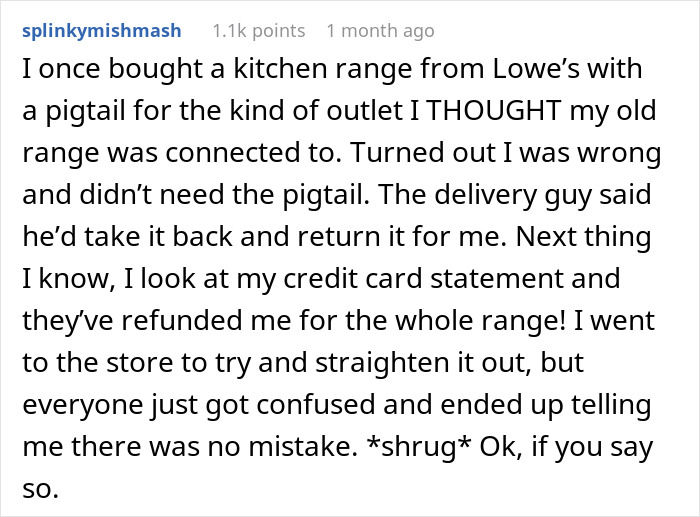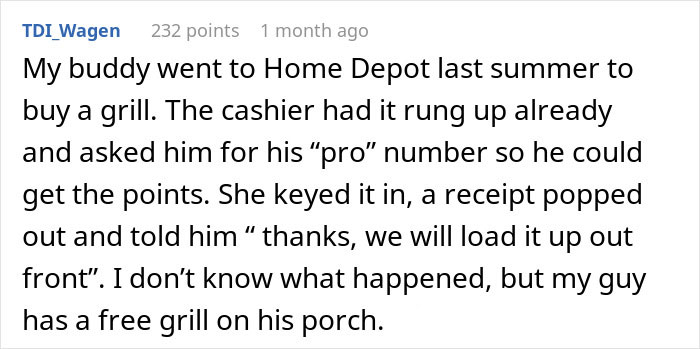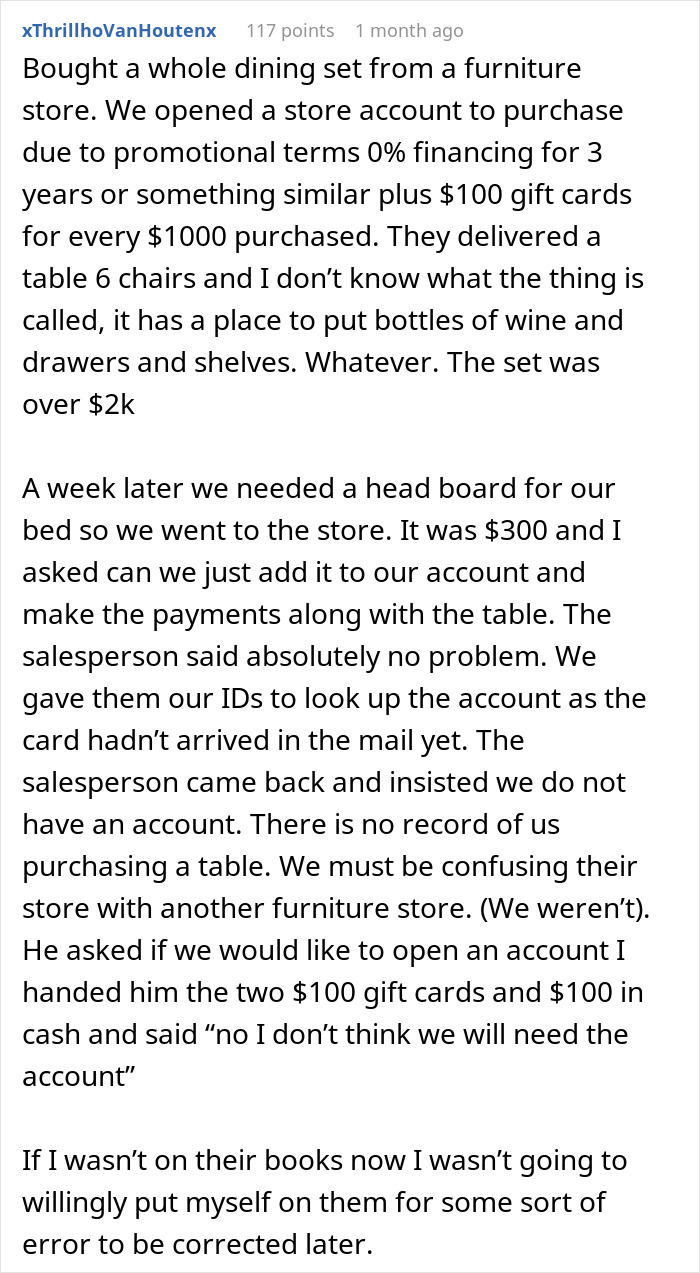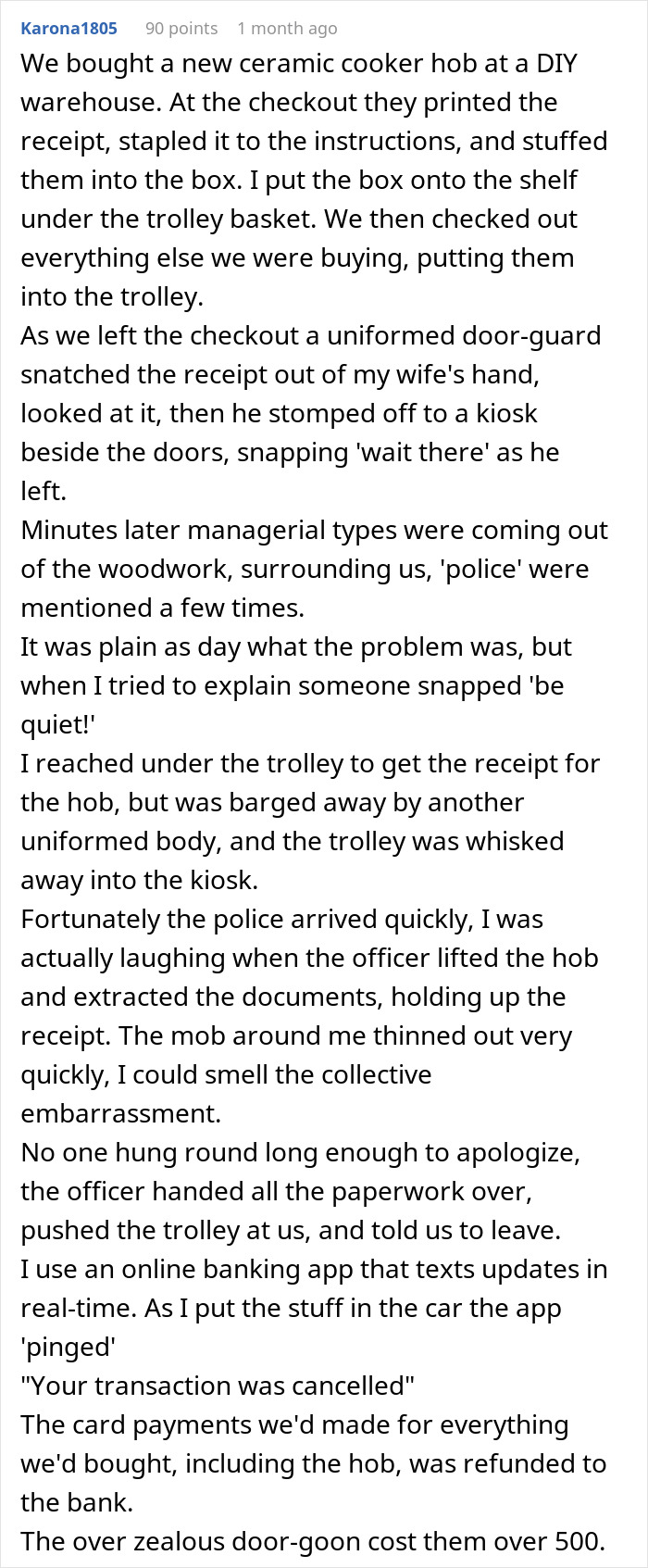As an expert or employee, it can be pretty annoying when some customer acts like they know more than you in the workplace. Often enough, these entitled, know-it-all customers are entirely delusional, but sometimes the universe sets things up to humble you.
A man shared a somewhat comical encounter with a home improvement store cashier who was absolutely sure she knew what she was doing and then proceeded to give him an entirely too large refund. We reached out to the man in the story via private message and will update the article when he gets back to us.
Some customers can be annoying when they act like they know everything

Image credits: Karolina Kaboompics (not the actual image)
But one man ended up getting an excessive refund after a cashier believed that she knew better
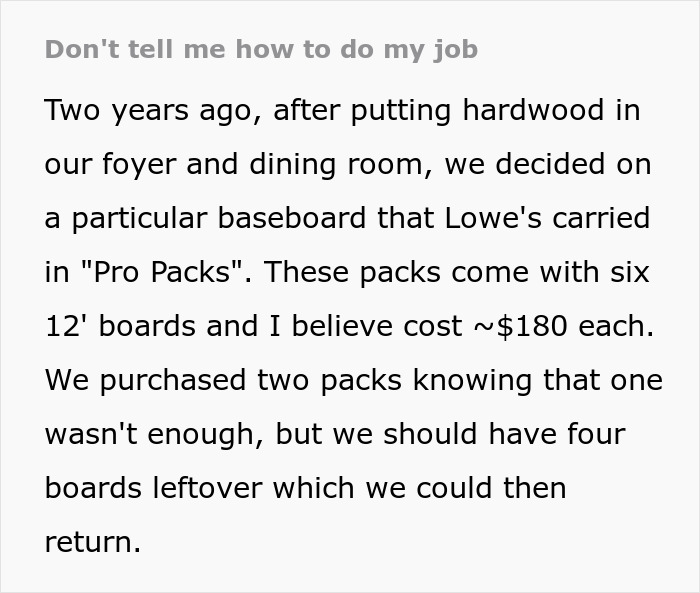
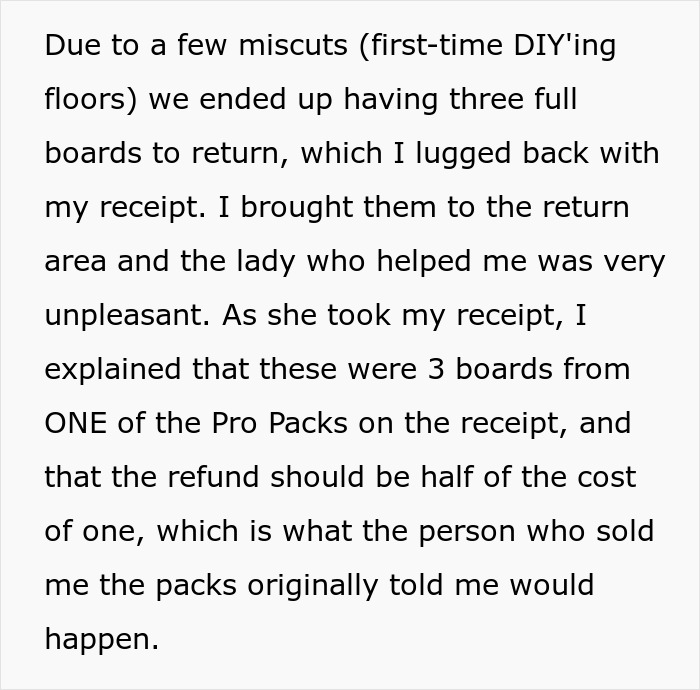
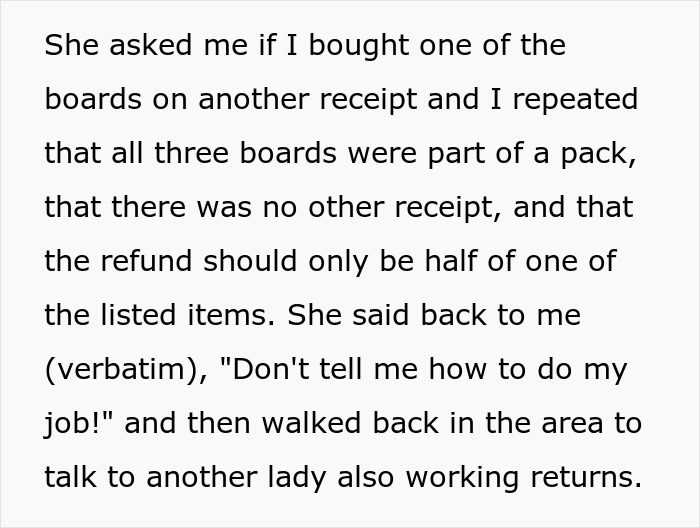

Image credits: Manuta (not the actual image)
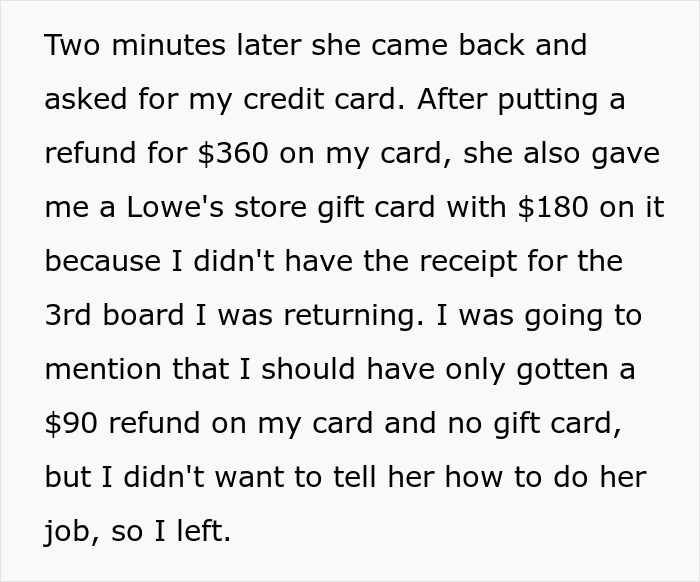

Image credits: 37yearoldthrowaway
The customer is, quite often, not right at all
Anyone who has had to work with the “general public” will know that “The customer is always right” is probably one of the most incorrect statements of all time. It’s up there with economist and writer Paul Krugman stating in 1998 that “The growth of the Internet will slow drastically, as the flaw in “Metcalfe’s law”—which states that the number of potential connections in a network is proportional to the square of the number of participants—becomes apparent: most people have nothing to say to each other! By 2005 or so, it will become clear that the Internet’s impact on the economy has been no greater than the fax machine’s.”
One of the earlier recorded iterations of this phrase comes from the business strategy of Sears, which instructed its workers that they must “satisfy the customer regardless of whether the customer is right or wrong.” This is an important point, as Sears management made it clear to its employees that a happy customer is a return customer. While, in this case, the cashier was no doubt just wrong, the man did leave the store no doubt feeling fantastic. The customer, after all, is not an idiot, and will twist things to their advantage.
But sometimes things work out for everyone
The cashier’s reaction is also quite understandable, as she has probably herself encountered all sorts of clients with the wildest ideas about how things “really” work. From invented discounts to ancient, unusable coupons, there is a subset of people who insist on doing things their way when that is entirely against policy.
In this particular case, it’s unlikely that the cashier was just doing this man a favor for no reason, but, equally, she only lost the store a little bit of money. All in all, a victimless situation. Indeed, the man might end up having such positive associations, that he might even return more often in the future, if only to improve his chances of getting another massive refund. In many cases, employees making mistakes can have considerably worse outcomes and losses for the company.
Malicious compliance is a beloved genre for a reason
Stories like this are one of the reasons tales of “malicious compliance” are so popular online. They combine, generally, low stakes and people “eating their words.” Justice, after all, is pretty popular and it always feels good to see it being served, even on a technicality. Malice is a pretty strong word, but in most cases, this idea is pretty mild, like this story, where a hardware store just lost a little bit of money. Some creative folks even use loopholes in the “letter of the law” to help others.
From the cashier’s perspective, unless she realized the error of her ways later, it’s no doubt also a great story. Imagine, an “annoying” customer comes in, explaining how to refund some boards, so you shut him up with a “don’t tell me how to do my job!” which shuts him up immediately, or so she thinks. Perhaps, in this case, ignorance is bliss.
Some readers shared similar stories
